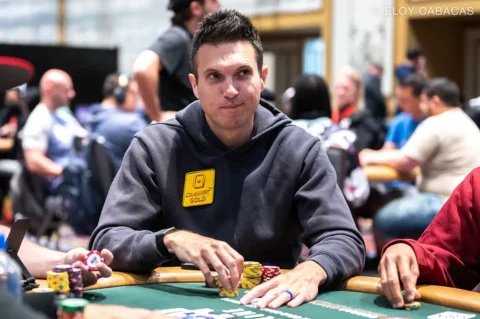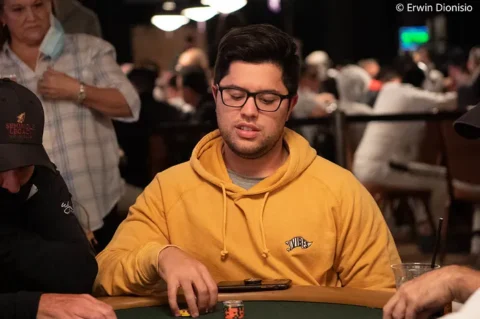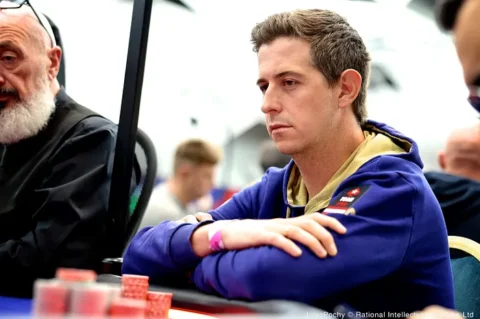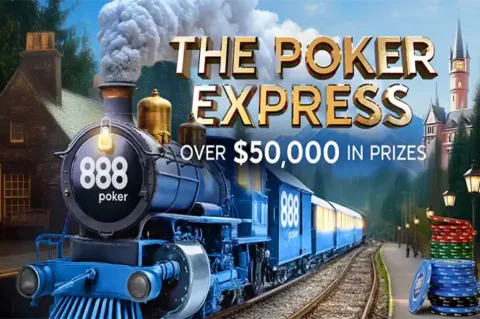There’s no greater feeling in poker than winning big and being handed a pile of Benny Franks at the cashier cage. A big cash game win on a Friday night. A podium finish in a tournament. Either way, as the great Paul Newman once said in The Color of Money: “money won is twice as sweet as money earned.” I can tell you from personal experience that you’ll feel like a real dolt if you end up donating it all back. Easy come. Easy go. Right? Or perhaps there is a better way? What you do with your poker winnings is up to you but planning ahead of your wins will help make the most of your next poker upswing.
In this article, I’ll help you work out how to maximize your poker upswings.

Your Context & Poker Goals
After a nice score, assessing the best way forward is going to be a matter of your context and poker goals. For example, an expat playing online poker professionally will have a lower cost of living than someone living in a North American urban center. This means, they can win at lower stakes and get by, no problem. Having lower expenses not only means they have more options when a decent score comes along but also what is considered a decent score changes. Context matters.
When an expat with less than $15,000 in annual expenses wins a $109 tournament for $40,000, that’s very meaningful. However, for most poker players, that context isn’t very relatable. Most of us will have a very hard time keeping our annual cost of living below $30,000, let alone $15K! While a $40K score would still be meaningful, the way it impacts your life and career will be very different from the impact on an expat or a student living at home, rent-free.
Your situation will be a major determining factor in how you proceed after you have a windfall or series of wins. Next, I’ve jotted down some items you should be thinking about with your first successes.
Bankroll Seeding & Padding
It’s not uncommon for players to play underrolled. Recreational players and part-timers will make their money elsewhere and use some of their expendable income to play poker. An upswing provides the opportunity to start separating your funds. Having an altogether separate bankroll from your checking account helps in approaching the game more seriously. It might seem arbitrary but that mental shift will have an impact on your career. Being able to state with clarity what your bankroll is will bring further clarity on your game selection and what kind of time you could or should invest at the tables.
READ MORE: On Poker Budgets and Poker Bankrolls
For example, let’s say you aspire to play poker as a profession but right now work a normal job. You show up to play $2/5 No Limit whenever you have an extra $1k lying around, which can be a few times a month. One night, the game gets deep and you happen to be on the good end of coolers and cash out for $6k.
While there’s no difference between what just happened versus winning a little at a time and setting it aside, this W offers an opportunity to shift gears now. You might not have enough to bankroll $2/5 regularly but you could sell half of your action and keep playing this stake. You could also move down to $1/3 and have 20 buy-ins, enough to commit more hours without worrying about going broke. You might make less per hour but you can put in more hours with less variance, never having to sideline yourself when waiting for payday.
Shot-Taking in Poker
Once you’ve got your initial bankroll and stakes sorted, a little upswing becomes less about making your poker hustle sustainable and more about growth.
Is it time to move up? If the skill level of the players at the next stake is similar to your current player pool, then you’ll make more if you move up. However, remember that as you increase stakes, so does your risk. Make sure you set aside an amount for the new stake so you’re ready to move down if things go south. It’s very common for a player to move up, realize the games are good, then go on a downswing and stubbornly refuse to back move down, driving themselves into bankroll oblivion.

Going busto in poker is the pits
It’s also important to know yourself. Will you play as well for greater sums than you’re used to? Maybe you’ll tighten up? Maybe losing a big pot will hurt more than you’d expect, unleashing your long-suppressed tilt-monkey?
When shot-taking, you must ensure that this is money you have no issue losing, that you can play your best no matter what, and that you can humbly return to your watering hole if it goes bad. Easier said than done.
Recreational players with no interest in playing full-time might just want to maximize their variance and go for gold. In this case, you might know of a big game in town that you’ve stayed away from because of its price point. Perhaps the nearby circuit stop has a $3.5K Main Event with $500K for first. Now’s your chance. You could break out of the poker middle class! Again, beware. As calculated as you might feel with this kind of risk, it’s easy for this to become habitual, opening yourself to brutal variance and a book’s worth of “gone broke” sap stories.
Slow and steady is a proven way.
Get your Ducks in a Row
Beyond a poker upswing giving you the opportunity to play bigger, you can actually use the money to improve your quality of life. An upswing is a great opportunity to clear any debt, establish a rainy day fund, and to start making your money work for you. Remember, just because you can play bigger, doesn’t mean you have to. Many players who have had big scores — myself included — will tell you that using their big score to go play against the biggest, meanest mugs in town was a terrible decision.
Clearing debt is one the most rewarding and stress-relieving decisions you can make. Believe it or not, the reduction of stress and freeing up of headspace that comes with paying off debt impacts your play at the tables for the better, always.
Having money set aside and invested means you’re never actually broke. This kind of security produces in-game fearlessness, allowing you to make the best decisions no matter what the stakes. Making these financial decisions might feel restrictive, keeping you back from your biggest poker goals, but are actually career-defining disciplines forging long-term success in your poker career and life. They might impede your chances of winning big but they will also impede your chances of losing big. In truth, real poker professionals don’t just leave when they’re up but they do take money out of the game.
Context, Context, Context
Again, this all comes back to context. Are you married with kids? Maybe be more conservative and think about how you can best serve your family. Are you a twenty-something flying solo? You have more than a little extra cash, then. You have time. You can make mistakes, even big ones. Your responsibilities, age, location, financial situation and goals all play a part in determining how to make the most of your poker upswings.
Remember people, being good at poker is one thing but being good at life is another.















